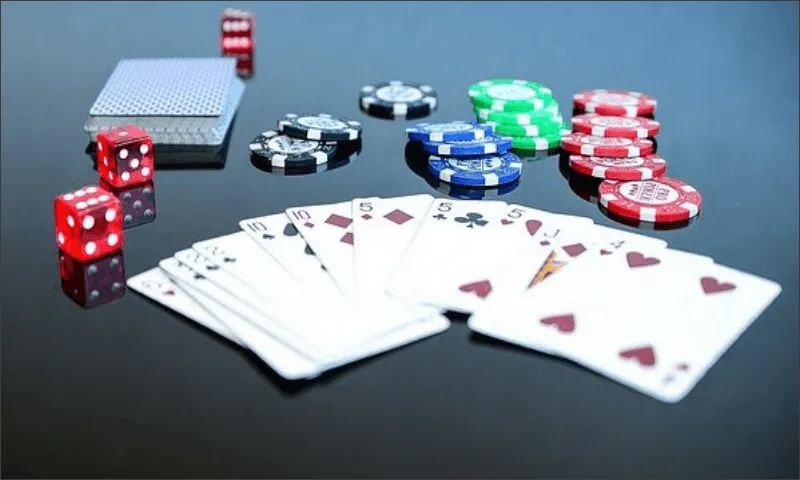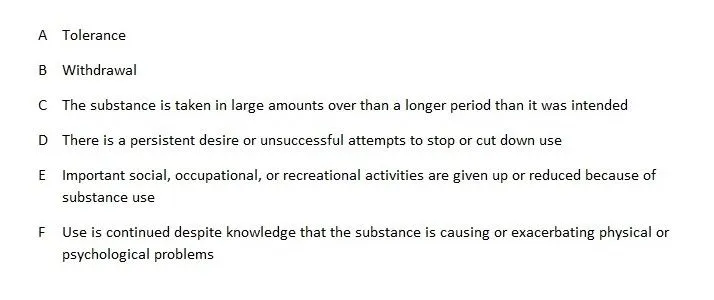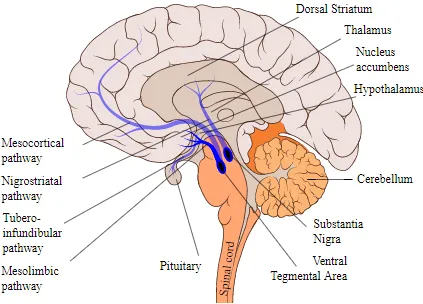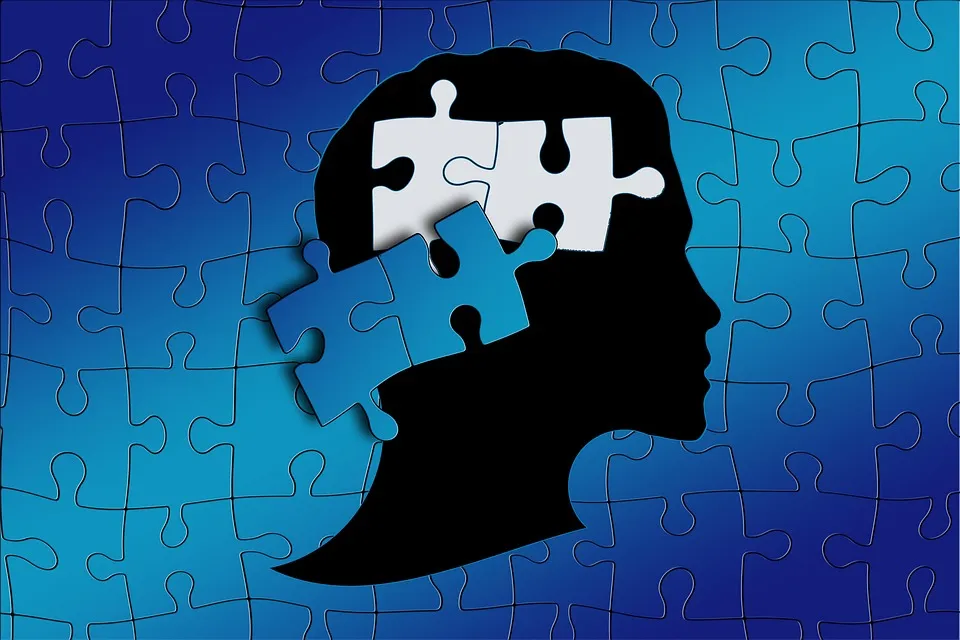
As a psychology addict I thought it was about time I discussed addiction here on my blog. I believe this is a pertinent topic because addictions of all kinds seem to permeate society in a very tangible way. Among my family and close friends – a relatively small group of people - there are a couple of workaholics, a smoker, a shopaholic and a handful presenting IAD (internet addiction disorder).
Now, I am sure you noticed that other than nicotine I mostly included on my list non-chemical related addictions; and that is because it is now understood that some behaviours like gambling, affect dopaminergic neurons in the same way that drugs such as cocaine do 1.
For this reason I fail to comprehend why the DSM addresses addiction mostly in terms of substances 2. Anyway, just in case you want to know what is required for someone to be formally diagnosed as an addict, here are the criteria they need to meet within one year-period, with a minimum of three out of the following seven:

Oh dear, if I replace the word substance by Steemit it looks like I am on my way to become a Steemit addict! As of late, I most definitely have been meeting criteria C, D and E give it another few months, it’s official! 😳
But, let’s explore tolerance and withdrawal a little further, because the other criteria are pretty self-explanatory.
Tolerance & Withdrawal
The DSM, unsurprisingly, links the term tolerance to drug-use only, and defines it as the necessity of larger and larger quantities of a substance in order to reach the desired effect. Nevertheless, research has demonstrated that sex addicts experience similar needs as to obtain the same degrees of high they once did 3. And the reason I point this out is just to highlight how some behavioral addictions are overlooked, and sometime, even mocked by society in general. When, in reality, they bring the same emotional distress and life disruption some drug-addictions do.
Here is what Professor Ryan says in his autobiography Secret Life.
My personality was formed around it [sexual addiction]. All of my talents, all my good qualities as a human being, were devoted to serving it, and I was willing to sacrifice anything to it.
Further, similarly to substance-addictions, addictive behaviours bring about feelings of a better psychological state. For example, the act of going to the shopping mall and purchasing goods often lifts anxious and depressive feelings. Sooo …. ? Well, this triggers expectations of revisiting such emotional states in the future, therefore motivating people to repeat the behaviour again and again.
What is more, those who try to quit addictive behaviours also undergo similar withdrawal symptoms (e.g. irritability, stress, anxiety) just like the individuals trying to cease the use of certain addictive substances. Unfortunately, this is something that sooner than later pushes them to go back to the high-street, to the casino or to watching adult movies, in other words, they relapse.
Next I am going to talk about some of the factors that make some people initiate such behaviours and activities.

What drives people to addictions?
As I always highlight in our discussions, it is very important to take into account the biopsychosocial model whenever the conversation turns to mental well-being. Naturally, when the topic is addiction the first of the three factors that springs to mind is the social one. Particularly when it refers to substances; but, this is because they always seem to take place within a context (very much like gambling) that has physical and social aspects that ultimately motivates the individual irrespective of whether he or she is alone or with a group of friends.
And guess what I have to illustrate this! An experiment with animals 😊 this week it will be with rats, though. This is an animal model that demonstrates how the environment and, to a point, psychological states may drive individuals to resort to opiates.
Social Factors
Here, Alexander and Hadaway assembled an entire social setting where some rats could enjoy ‘wealth’ and companionship with other members. While in another different setting, the less fortunate rodents were placed in small individual cages. Predictably, the ‘wealthy’ rats only took a small fraction of the substance when compared to the amount taken by the isolated, lonely ones 4. Providing, therefore, an insight into the role hopelessness and isolation play into motivating humans to initiate (and, perhaps, maintain) addictions to either a certain drug or behavior.
Psychological Factors
Within the context of addiction stress becomes a tricky subject, because it can work first, as what drives people to engage with addictive behaviours and substances - as when we mentioned previously that people will experience a better emotional state after a shopping-spree. And second, it can also be the reason why some people will relapse. This is because it is truly hard to say ‘no’ to temptations when feeling stressed 5.
What is important to note here, above all, is that the majority of people who adopt an addictive behaviour or substance-use seem to do it in order to be able to cope with problems. Well, this is something I see in my husband’s step-mother, who takes ‘retail-therapy’ after a stressful week 🙊
But, of course, there is way more to addiction than the factors that drive individuals to it. This is a scenario that involves factors that cause the person to maintain it as much as a reality where individual differences should be considered.
Making sense of Addiction
In order to make sense of why certain individuals resort to such strategies in order to deal with problems, some models have been developed. These are models to understand addiction. I am going to discuss them here very briefly.

The mesolimbic pathway, sometimes referred to as the reward pathway, is a dopaminergic pathway in the brain.
Disease Models of Addiction
These are biomedical perspectives to understanding why some people become addicted and others don’t. As such, their main focuses aren’t on the environment or psychological aspects that might drive someone to engage with drug use, or gambling, for example.
Through this lens, addiction is interpreted as a ‘disease’ and not as a choice as it was previously perceived up to when these models came along. The advantage these sorts of views bring is that they don’t blame the person. In this scenario addiction is not seen as a type of character weakness; which is something that allows the individual to focus better on rehabilitation, as it leaves no room for guilt.
The susceptibility model
Proposes that genetic determinants may influence several behaviours that will either increase or decrease the chances of a person becoming and addict. Of course, no one single gene is said to be responsible for this influence; instead there are several genes that in the social and environmental context contribute to the relevant behaviour. This model goes as far as to propose that such genetic contributors even play a part in prompting novelty-seeking behaviour.
The Incentive Sensitisation Model
A neurobiological model. This model mostly suggests that addiction unfolds because the individual desires the object of addiction (alcohol or shopping) more and more as time goes by, as a consequence of the sensitisation of the mesolimbocortical pathway. This is due to changes the addicted’s brain undergoes as a result of the repeated exposure to the drug or behaviour, which triggers compulsion and, finally, addiction.
Psychological Models of Addiction
In order to address the significant psychological factors that influences individuals to resort to addictive behaviours (factors that were left aside by the biomedical models), psychologists felt compelled to elaborate models of addiction too. And while they may sometimes oppose to the disease models, it is very helpful to see them rather as complementary.
A Rational Choice Model of Addiction
Yes, we are about to discuss addiction here as a result of a rational choice. And before your jaw drops, just try to put yourself in the shoes of the addicted individual. Also, keep in mind that we are not talking about making the*right* choice. It might be difficult for you to understand why someone would choose to develop any sort of addiction. Nevertheless, the rationale behind it might be that through adopting certain substances or behaviour the benefits brought about might actually outweighs the costs. As in some cases where people’s lives sometimes are even worse without their addiction.
Addiction as a Cognitive Bias
A cognitive bias is a mistake in reasoning, evaluating, remembering, or other cognitive process, often occurring as a result of holding onto one's preferences and beliefs regardless of contrary information.
This is the most widely known psychological model of addiction and posits that the addicted person focus on, and selectively memorises certain information about their addiction as a result of their attention and memory processes. Consequently, this leads them to biased beliefs that impair sensible judgement towards drugs and certain behaviours 6.
So, returning to the complexity of addiction, whenever evaluating any of these models more in-depth the important questions to ask are:
Does it explain things such as how addiction is initiated and maintained?
Does it explain features such as tolerance or withdrawal?
Does it regard individual differences such as personality?
And, ultimately, can it predict suitable treatments?
Still, even in a more in-depth exploration of the models listed above you will find that some of them are more successful than others in answering these questions. Indeed, some won’t even deliver an answer to certain questions.
The incentive sensitisation model is, perhaps, the most popular one among mental-health professionals; this is due to its large evidence base, and because it satisfactorily answers all the questions above.

Reflection
Whenever I watch documentaries on drug addiction, or come across people living with any sort of addiction I cannot help but link their situation to anxiety, sadness and stress. If you remember well, these are emotional states that we have mentioned here when discussing what might drive people into addiction, or indeed, what causes them to relapse. New types of addictions like gaming, food and even internet addiction spring up as a means of escapism and distraction. From what? One might ask. Well, life is busy and overwhelming. I, for instance, have a good life. Yet, it feels quite stressful at times. And just as I am writing this, I recalled an interesting comment I received not long ago on my post Discussing misconceptions about psychology, where the reader asked me the following:
Has stress not existed in humans forever or have we been cultivating an environment that is more and more stressful?
This was my reply to this reader, which I decided to share with you all in an attempt to make sense of our increasingly addicted society.
Yes, and stress is one of the very components on our biology that has allowed us to thrive as a species! However, the notion that Biological Psychologists put forward is that although culturally humans have come a long way from their ancestors, the timespan of a few ten thousands of years is not sufficient to allow the biological evolution that modern life demands from our species. In other words, our brains and emotional systems are still pretty much the same from back in the day when our species lived in small kin-groups as hunters/ gatherers.
[Original Content by Abigail Dantes - 2018]
Reference List:
Attentional bias in addictive behaviors: a review of its development, causes, and consequences.
A Cognitive Model of Drug Urges and Drug-Use Behavior: Role of Automatic and Nonautomatic Processes
DSM-IV Substance Dependence Criteria
DiClemente, C. (2003) Addiction and change: How addictions develop and addicted people recover, New York, Guilford Press
Opiate addiction: The case for an adaptive orientation.
Ryan, M. (1996) Secret Life: An autobiography, London, Bloomsburry.
The neurobiology of pathological gambling and drug addiction: an overview and new findings
The Ultimate High: Sexual Addiction and the Bug Chasing Phenomeno
Image sources – Pixabay.com & Wikipedia: 1,2,3,4.


Dear Reader,
Thank you so much for taking the time to read another one of my long, long posts 😊
Today, I would like to inform you all that for the next two months I will be posting every other Friday, because life has got really busy at my end 😌
As always, I wish to each one of you only the best in life. Have a wonderful weekend :)
Abigail.